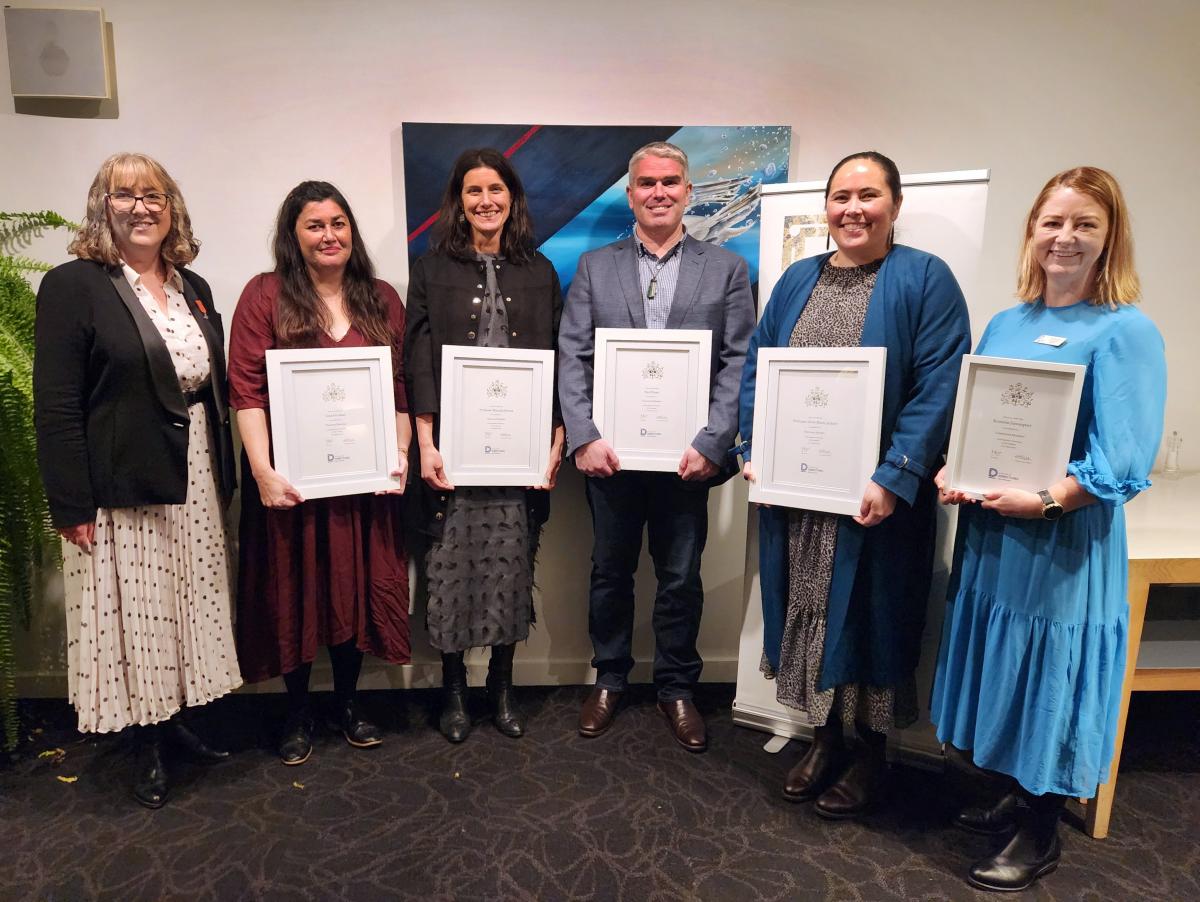When Kirsten (KP) Patterson was appointed chief executive of the Institute of Directors (IoD) eight years ago, one of the very first issues she encountered was a conversation around whether climate change was a governance issue.
Now the IoD-hosted initiative Chapter Zero NZ — which is part of a global climate governance initiative that spans 50 countries and is focused on supporting directors to take action on climate change at a board level — has nearly 3000 members.
Ms Patterson was in Dunedin this week to speak about ethics at an IoD Otago-Southland branch event, and to attend its annual chartered member and fellows dinner where — alongside Ranfurly-based director Dawn Sangster — she spoke about governance and leadership.
Both women were made Members of the New Zealand Order of Merit in this year’s New Year’s Honours for their services to governance and women.
The level of change happening in the world — which was impacting all organisations, whether not-for-profits or listed companies — was so broad, and boards had to be across that complexity and breadth of issues, Ms Patterson said.
As chairwoman of the Global Network of Directors Institutes, she had the opportunity to see the global trends via the more than 20 countries represented in that organisation.
Not surprisingly, the big issues at present included geopolitics, trade and globalisation, but the approaches to those challenges from different countries and industry groups was quite different.
Cybersecurity was the number one issue keeping directors awake at night but, in New Zealand, where IoD members were surveyed each year, that was not in the top three.
The big issue coming through very clearly here was economic conditions, then there was also climate change and culture.
New Zealand was the first country in the world to introduce laws around climate-related financial reporting and a lot of focus and attention had been put into the issue.
While cybersecurity was not hitting that top three of major issues — although it would be for some boards and industries — she would like to see more focus from boards on it.
Boards also needed to lean into the conversation around ethical use of artificial intelligence (AI) and the IoD had developed nine principles to help boards to ethically adopt and effectively use AI.
Ms Patterson is chairwoman of the Brian Picot Ethical Leadership advisory board at Victoria University. There was specific research in ethics, particularly in the business space, and it was great to have snapshots of what was happening, she said.
While there were lots of conversations about purpose and values, there were still not enough organisations having conversations about ethics, she believed.
Governance was critical, whether it was for sports clubs or corporates, involving people being relied on to come together and make judgements and choices.
The space had changed. For things that were known and certain, for which there were answers, then management would take care of that. Boards were left with the “tricky stuff”.
Governance provided intellectual stimulation. It required curiosity and a lot of different skills to bring diversity of thought.
That was what she loved about IoD communities which were diverse — much more than what people might think — and there were some great people coming through the governance pipeline, she said.
“I genuinely believe the difference between whether you’re building yourself a job as business owner or building something you could sell is about governance. The business needs to be able to live after you and continue after you,” she said.
Workload for directors was surveyed by the IoD, and that had peaked around the Covid-19 pandemic. There had been an increase in the hours involved which included work outside board meetings, whether that was the likes of site visits and engaging with staff, or engaging with stakeholders.
Boards were much more visible now and, because of the complexity of issues, the amount of learning and thinking and preparation required was greater. It was not about just reading the board papers on the plane on the way to a meeting, she said.
Using a sporting analogy, Ms Patterson said boards were a team sport. Directors like Dunedin’s Trish Oakley, recently elected national president of IoD, were individual high performing athletes who were training at home. Then those athletes came together to perform as a team.
It was an exciting time to be involved in with governance. While directors needed to be comfortable with risk and responsibility, there was an opportunity to see inside so many different organisations and help shape their strategy, culture and framework — “and New Zealand’s better off for it”, she said.
sally.rae@odt.co.nz
